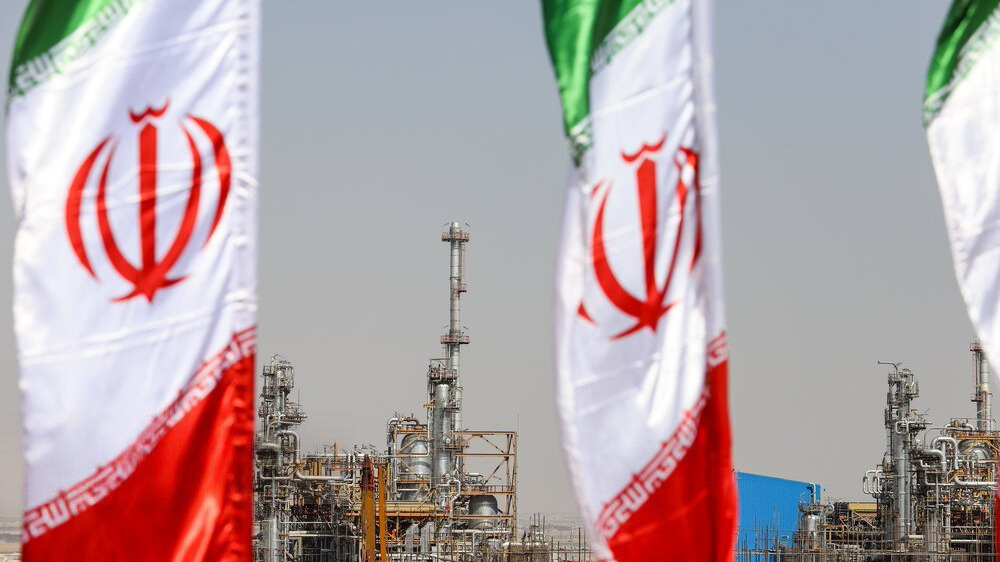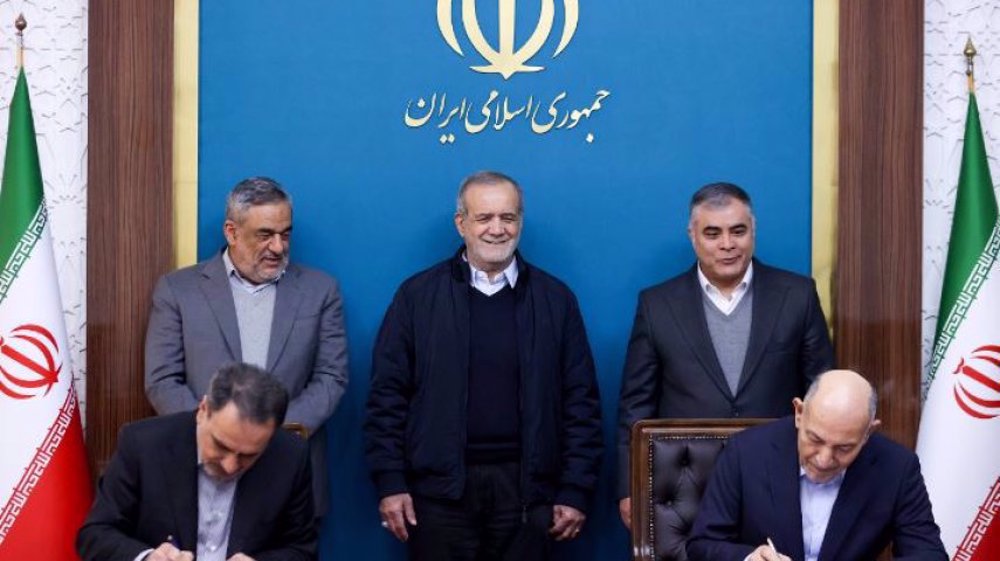Zangeneh: Energy cooperation with China ‘strategic’
Iran’s Minister of Petroleum Bijan Namdar Zangeneh has described energy cooperation with China as “a strategic decision,” reiterating that Tehran is ready to expand ties with Chinese companies after anti-Iran sanctions are lifted.
Zangeneh described China and Russia as Iran’s “strategic partners” saying that “countries which cooperated with us under sanction conditions will be given priority in post-sanction era.”
He also pointed to the cooperation with China National Petroleum Corporation (CNPC) in developing phase 11 of massive offshore South Pars gas field and said the contract was terminated due to sanctions imposed on Iran over its nuclear program.
The Iranian minister also said completion of all phases of South Pars gas field needs $20 billion investment which is to be financed through domestic resources.
“If these resources are provided, South Pars gas field will be completed within 3 years,” Zangeneh was quoted as saying by Shana.

South Pars covers an area of 9,700 square kilometers, 3,700 square kilometers of which are in Iran’s territorial waters in the Persian Gulf. The remaining 6,000 square kilometers are situated in Qatar’s territorial waters.
The gas field is estimated to contain a significant amount of natural gas, accounting for about eight percent of the world’s reserves, and approximately 18 billion barrels of condensate.
Boost in gas exports
Zangeneh also announced that Iran wants to boost gas exports to regional countries including Turkey, Iraq, Azerbaijan, Afghanistan, Pakistan as well as Persian Gulf Arab states.
He pointed to the issue of gas export from Iran to Pakistan and said Iran has already completed its share of the pipeline under the agreement and will use it to supply gas to southeastern parts of the country.
“Pakistan has announced that it cannot build the gas pipe line due to sanctions… The issue of fines and other articles of the contract still hold and any change in this regards should be discussed,” Zangeneh noted.
Iran and Pakistan signed an agreement for the construction of the gas pipeline in 1995. Later, Iran made a proposal to extend the pipeline from Pakistan into India. In February 1999, an accord between Iran and India was signed.

But due to the US pressure, India withdrew from the project in 2009.
Iran has already built its 900-kilometer share of the pipeline on its own soil and is waiting for the 700-kilometer Pakistani side of the pipeline to be built.
The IP pipeline aims to help Pakistan overcome its growing energy needs at a time when the country of over 180 million people is grappling with serious energy shortages.
The United States has long been threatening Islamabad with economic sanctions if it goes ahead with the plan.
HA/HA
US-backed riots suffered 'humiliating' defeat in Iran: Yemeni leader
Pezeshkian: ‘Unholy rage’ fueled by Iran’s enemies after June defeat
Iran condemns Israeli demolition of UNRWA headquarters in occupied al-Quds
Denmark reasserts Greenland sovereignty as Trump claims ‘total access’
Iran’s political legitimacy comes from ballots and popular will, not foreign powers
VIDEO | Press TV's news headlines
VIDEO | The reckless US
Qalibaf: Recent unrest a 'complementary link' in 12-day war against Iran










 This makes it easy to access the Press TV website
This makes it easy to access the Press TV website